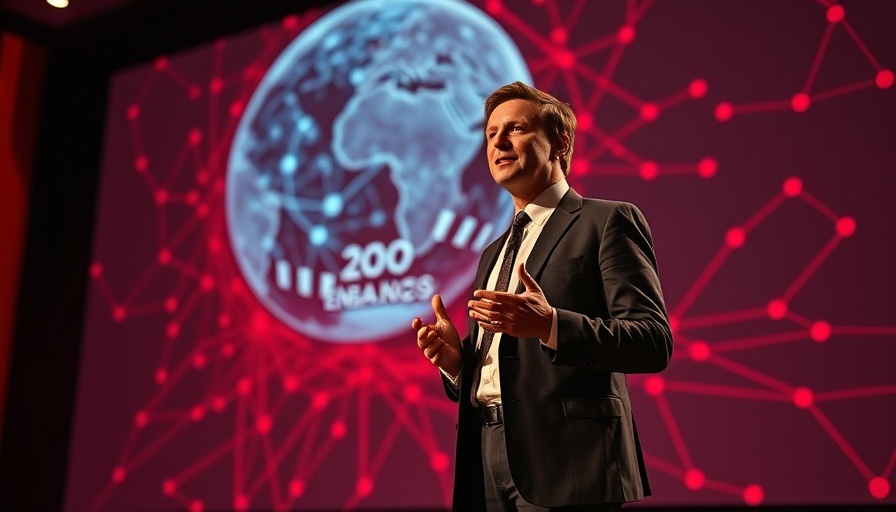
The Buzz Surrounding Mobile World Congress
The Mobile World Congress (MWC) in Barcelona is drawing significant attention this year, as excitement around artificial intelligence (AI) collides with prevailing uncertainties about international trade. With an estimated 100,000 attendees flocking to the event, tech enthusiasts and industry leaders alike are eager to see how these two worlds will interact, particularly in light of the geopolitics surrounding U.S. tariffs on Chinese goods.
Understanding the Implications of AI in Consumer Technology
AI's presence at MWC is set to take center stage. Several prominent companies, especially from China, are launching innovative AI-driven products. Manufacturers like Honor, a spinoff of Huawei, are paving the way for ‘intelligent’ smartphones equipped with AI agents that promise to enhance everyday tasks such as scheduling and reservations. This trend demonstrates a shift where AI capabilities are not just an add-on, but a core feature making technology more intuitive and user-friendly.
Trade Tensions: A Weight on Innovation?
However, the specter of ongoing trade tensions looms heavily over the conference. Tariffs imposed by former President Trump on Chinese imports are not merely a political issue—they directly affect the technological landscape. As these tariffs increase operational costs for many companies, industry leaders express concerns over their long-term viability and investment strategies. Pekka Lundmark, CEO of Nokia, emphasized the unpredictable nature of international trade, indicating that the market is at a critical juncture.
The Collision of Optimism and Caution
The juxtaposition of AI optimism against the backdrop of trade disputes presents a unique challenge for the industry. While consumers and companies are excited about the transformative power of AI—especially following the rise of generative models like ChatGPT—there is a rising sentiment of fatigue and skepticism about practical applications. As Ben Wood of CCS Insight pointed out, the tangible benefits of AI often remain elusive, which leads to questions about its true impact on consumer technology.
Long-Term Prospects for AI and Trade Policy
Looking ahead, experts suggest that the evolution of AI in smartphones could redefine customer experiences. Innovations like the AI agents from Honor are being developed in collaboration with tech titans like Google and Qualcomm, showcasing the drive for a more connected and efficient technological ecosystem. Yet, any advancements may come at a cost if the trade environment becomes more hostile. Companies may need to strategize for an uncertain future where regulations and tariffs could dictate how innovation is pursued.
Consumer Sentiment and Market Evolution
Despite looming challenges, the smartphone market showed resilience as illustrated by a 6.3% growth last year, recovering from previous downturns. This recovery suggests that while trade policies may inject uncertainty, there remains strong consumer demand for innovative technology. IDC research director Nabila Popal notes that sales growth persists in the face of macroeconomic hurdles, signaling a robust appetite for smartphones enriched with AI features.
CALL TO ACTION
As we look to the future of technology, it is clear that the MWC will be a pivotal event shaping the narrative around AI and trade dynamics. Stay informed about the latest advancements and insights from this crucial industry event. Follow our coverage to explore how AI innovations can enhance your technology experience and what these trade tensions mean for the global tech landscape.
 Add Row
Add Row  Add
Add 




 Add Row
Add Row  Add
Add 

Write A Comment